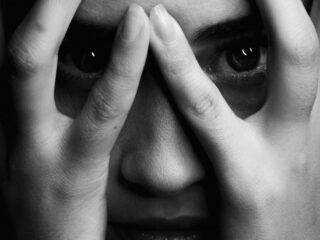
Many people have chronic anxiety and stress. They face symptoms like tension, agitation, nervousness, chest pain, and a racing heart. Anxiety is, in fact, among the most common mental health issues.
Each year, more than 18% of adults are affected by anxiety disorders in the US alone. In some cases, health conditions like an overactive thyroid, also known as hyperthyroidism, can lead to an anxiety disorder.
In this article, we’ll provide a wide range of natural remedies that can help reduce stress and anxiety.
Exercise
Exercise is an excellent way to burn off anxious energy, and studies seem to support this use. For instance, a review of 12 randomized controlled trials found that exercise could be a remedy for anxiety. To figure out how effective it is, however, further higher quality research is required — according to the same review.
Exercise can also help with the anxiety caused by stressful circumstances. A recent study shows that exercise benefits people with stress and anxiety related to quitting smoking.
Relaxation Exercises
Some people unconsciously clench the jaw and tense the muscles in response to anxiety. Luckily, progressive relaxation exercises can help prevent this.
Consider lying in a comfortable position. Now, slowly constrict and relax each muscle group, starting with the toes and working up to your shoulders and jaw — this is a great way to deal with anxiety more naturally.
Meditation
Meditation helps to slow down your racing thoughts, making it easier to manage anxiety and stress. A number of meditation styles, including meditation and mindfulness during yoga, can help.
Mindfulness-based meditation has become an increasingly popular therapy in recent years. It can be highly effective for those with disorders relating to anxiety and mood, according to a 2010 meta-analytic review.
Writing
If you can find a way to express stress and anxiety, it will be much easier for you to manage.
Some experts suggest that journaling and other forms of writing can help you to cope better with anxiety. For example, a 2016 study found that creative writing can help children and teenagers to manage anxiety better.
Aromatherapy
Smelling soothing plant oils may help you ease stress and anxiety. Certain scents work for certain people. Therefore, consider experimenting with different options.
Lavender could especially be helpful. A study tested the effects of aromatherapy with lavender on 67 women aged 45-55 suffering insomnia. Results showed that the aromatherapy could help reduce the heart rate in the short term, which in turn could help to ease sleep issues in the long term.
Hypnotherapy
Hypnotherapy or hypnosis is a type of nonstandard treatment that uses guided relaxation, focused attention, and intense concentration to gain a heightened state of awareness, which is sometimes called a trance.
While in this state, your attention is so focused that anything going on around you is temporarily ignored or blocked out. With the help of a trained therapist, you can focus your attention on specific tasks or thoughts in this naturally occurring state.
Hypnosis can sometimes help with psychotherapy as the hypnotic state enables you to explore painful feelings, thoughts, and memories that you might have hidden from your conscious mind.
The hypnotic state allows you to be more open to suggestion and discussion and improves the success of treatments for several conditions like:
- Phobias, fears, and anxiety
- Stress
- Some sleep disorders
- Post-traumatic stress disorder
- Irritable Bowel Syndrome
- Grief and loss
It can also help to overcome habits like smoking or overeating.
CBT
CBT – cognitive behavioral therapy – is one of the most effective therapies for anxiety.
Many people found a cognitive approach to be helpful and much quicker than most therapeutic approaches.
It’s easy to get trapped in the habit of thinking negatively. The goal of CBT is to help you understand how your thoughts affect your behavior and emotions and to replace those reactions with constructive or positive alternatives.
CBT can help with generalized anxiety, as well as anxiety relating to a particular issue, such as work or an instance of trauma. It has also been combined with the practice of mindfulness, which has shown promising effects as well.
Time Management Strategies
Some of us feel anxious when we have too many commitments at once. These involve work, family, and many health-related activities. Having a plan in place for your next necessary action will help to keep that anxiety at bay.
Time management strategies are effective and can help you to focus on one task at a time. Online calendars and book-based planners can help, as can resisting the desire to multitask.
Some people also find that breaking big projects down into manageable steps help them to accomplish the tasks with less stress.
CBD Oil
CBD — Cannabidiol Oil, is a derivative of the hemp plant.
Unlike other forms of cannabis, CBD Oil does not contain Tetrahydrocannabinol (THC) — the main mind-altering ingredient found in the cannabis plant.
Preliminary research suggests that CBD Oil has significant potential to reduce anxiety. The same research shows evidence that strongly supports CBD as a treatment for generalized panic disorder, obsessive-compulsive disorder, and social anxiety disorder.
CBD Oil is available without a prescription in many healthcare stores. In areas where medicinal cannabis is legal, doctors may also be able to prescribe the oil.
Herbal Teas
Several herbal teas promise to help with stress, ease sleep and have many health benefits.
Some people even find the process of making and drinking tea utterly soothing. However, some teas may have a more direct effect on the brain which results in reduced anxiety.
A small 2018 trial results suggest that chamomile can alter the levels of cortisol — a stress hormone.
Herbal Supplements
Similar to herbal teas, there are a few herbal supplements that claim to reduce stress and anxiety. But, little scientific evidence supports these claims.
Nevertheless, it’s important to consult with a doctor who’s knowledgeable about herbal supplements and how they interact with other drugs.
Time With Animals
Pets offer love, companionship, and support. They can be beneficial to people with various mental health issues, including anxiety and stress.
While some people prefer dogs, cats, and other small mammals, people with allergies will be happy to know that the pet doesn’t necessarily have to be furry to be able to provide support.
According to a study, having pet insects can also help to reduce anxiety. The same study suggests that caring for crickets can improve psychological health in older people.
Furthermore, spending time with animals could reduce the stress and anxiety associated with trauma. Results of a recent systematic review showed that grooming and spending more time with dogs and horses could alleviate some of these effects.
Final Words
Untreated anxiety may get worse and cause more stress in your life. However, anxiety is highly treatable with natural remedies, therapy, lifestyle changes, and, of course, some medications.
You may need to try several combinations of remedies before finding one that actually works. In this case, a doctor can help you to determine which options are best for you.






